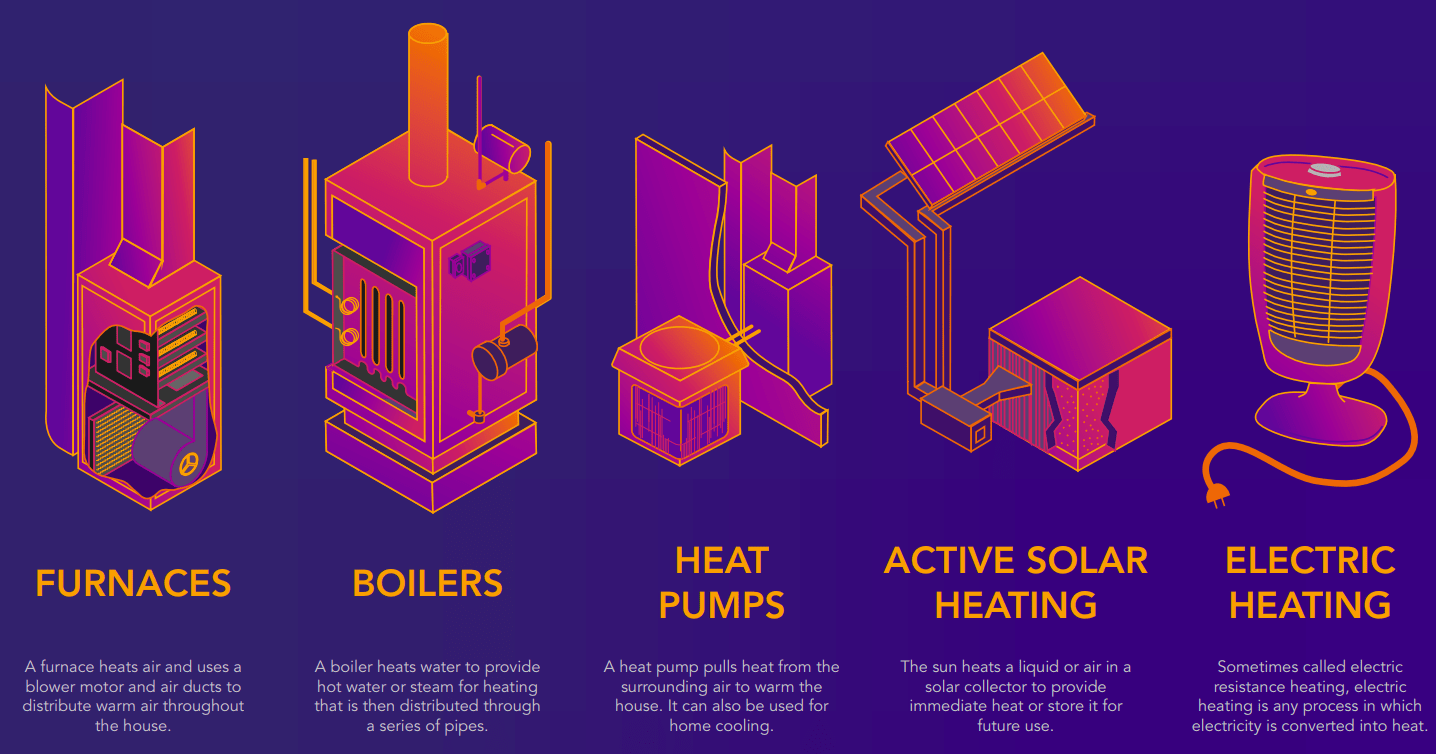
There are a lot of choices for heating systems when the winter comes. Whether you want to replace your old, noisy heating system or want to purchase a new one for a new home, you should be aware of the factors that you will need to consider before you have a heating system installed such as:
- Climate – the climate in your area is a very important factor to consider. For instance, households in Victoria have different needs than Winnipeg.
- Insulation – assess your home’s insulation. Make your house well-insulated by caulking you windows, and inspecting your ductwork.
- Available energy sources – There are areas which have natural gas and there are some that don’t. Identify the available source to narrow down your system choices.
Types of heating systems:
- Forced-air systems. Among all the heating systems, this is the most popular. This system heats air then forces it through the ducts then to your rooms. Most heating systems of this kind are fueled by natural gas, but they’re also available in propane, oil, and electric. The electric types are less expensive but they consume the most energy. In choosing a system, you will also need to check the AFUE (Annual Fuel Utilization Efficiency) rating. This will tell you how efficient a system is. A yellow energy star sticker are also included in systems that are highly efficient.
- Heat pump. A common heat pump is the electric air source system. This type offers air conditioning and heating in just one unit. Heat pumps work by taking outside heat and transferring it inside for warmth. In reverse, it takes inside heat outside to cool your rooms. In times where the outside temperature is 40 degrees F, heat pumps are most efficient. The heating efficiency of this system is measured by the HSPF or the Heating Season Performance Factor; while the cooling efficiency is rated by the SEER or the Seasonal Energy Efficiency Ratio. An Energy Star logo would also be included in heat pumps that are highly efficient.
- Geothermal heating systems are for those who are pro-green. The heat comes from the earth and not air. This makes it efficient and accurate. A ground loop system is being used for a geothermal system which makes a complex and a costly installation. Don’t worry since the benefits will outweigh the costs. This heating system does not require much maintenance, eliminates noise, and has longer lifespan. If you’re having second thoughts in having a geothermal heating system, you can have a dual-source unit which is a combination of a ground-source system and an air-source system in one heat pump. These units are less costly but still have great efficiency.
Once you’ve identified all the necessary information to have the right heating system, call a HVAC professional and consult with them. They will be able to tell you the right size of system for your home and answer other questions that you have regarding a heating system.
There are many choices to choose from and you’ll be blinded by how one can be very efficient. But always consider the factors above so you’ll know the best heating system for you. Remember that there are systems that can have the highest efficiency rating but those aren’t always the best for your home which experiences a particular climate.
The post How to Select a Heating System appeared first on Furnace Repair Mississauga.
 Most people make use of their garage as a work place, a “man cave”, a place for recreational hobbies, or a place where they can have some time for themselves. These reasons compel homeowners to make sure that the garage is as comfortable as the rest of their home. If you’re thinking about purchasing the right
Most people make use of their garage as a work place, a “man cave”, a place for recreational hobbies, or a place where they can have some time for themselves. These reasons compel homeowners to make sure that the garage is as comfortable as the rest of their home. If you’re thinking about purchasing the right